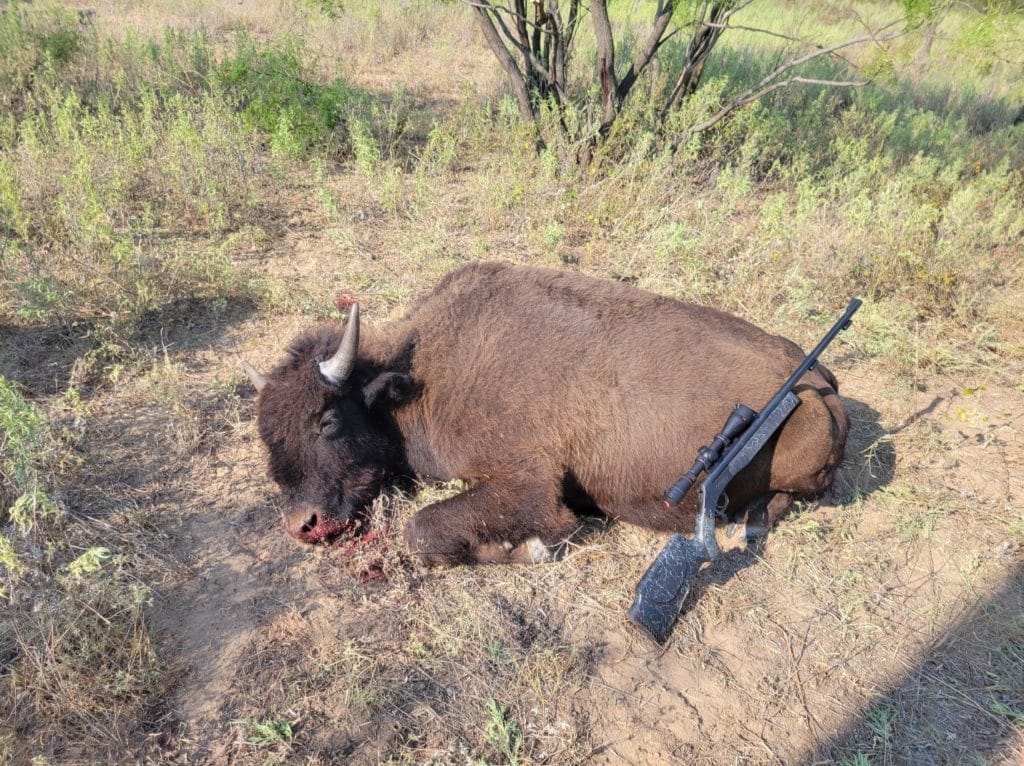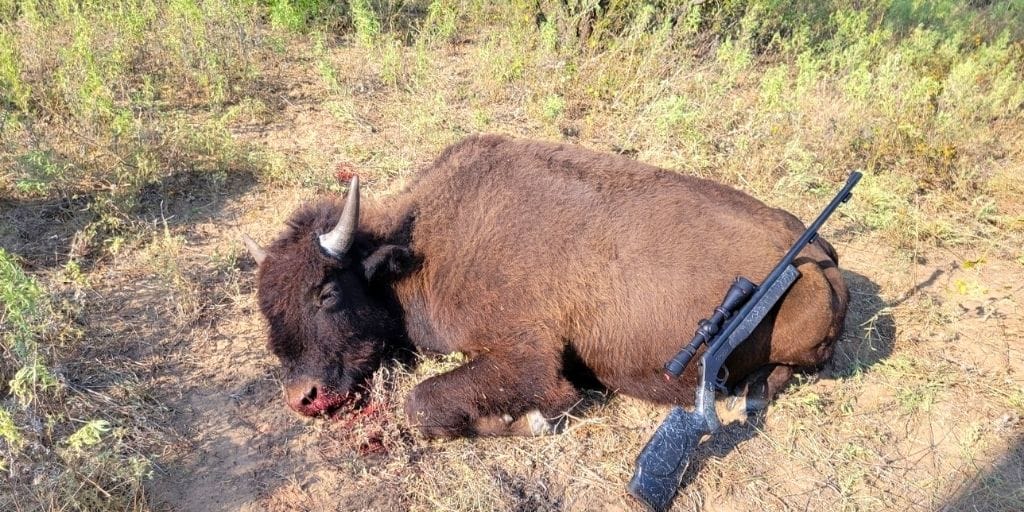I started shooting guns at a young age, probably 5-7 years old. While doing so, it was ingrained into me that when you shoot your gun, you clean it right after. I remember many nights with pieces of an old t-shirt and a ramrod cleaning in the living room. This probably came from my grandfather’s time in the Army in WWII. You will often find the people who use guns the most often also clean them the most. Once you have had a dirty gun fail you, you will likely become equally as diligent.

What happens when you do not clean your muzzleloader?
Gun barrels are made of different steel alloys. Steel is an alloy mixture of iron with carbon. Iron molecules are mixed with other elements that give gun barrels the strength to withstand the gas and forces that ignite the powder and send the projectile through the barrel. Iron as an element is likely to corrode. Corrosion happens over time as the metals encounter other substances, such as the oil from our skin, moisture from the air, and other components within the bullets that we use.
What is happening:
- Sweat and oils from our skin deposit salts that can interact with the barrel material leading to rust. If not caught in time, this can lead to pitting.
- Moisture can cause rusting on both the outside and inside of the barrel.
- Carbon can become deposited within the chamber or on the barrel as the powder burns.
- Copper, lead, and plastic from your bullet’s jacket can also become deposited.
- Most importantly with muzzleloaders, the powders/primers we use contain salts that can stick inside of your barrel.
Most of the powder in traditional bullets is not corrosive, but this is not true for many of our muzzleloading powders. Corrosion inside the barrel can change the bore which can eventually change the flight of your projectile and leave you with a useless weapon. Replacing a barrel is often more expensive than purchasing a new weapon.
How to clean a muzzleloader
I received my first inline muzzleloader as a gift. While I have shot it once or twice for fun, I had the opportunity a few weeks ago to use it on a hunt in south Texas for a bison. When I got home, I wanted to clean it. This is how you do it.
- Get a copy of your owner’s manual. You can get this from the manufacturer’s website.The way you remove the breech plug is a little different for each. You should have a wrench for this, or the appropriately sized socket will work in a pinch.
- Clean and oil your breech plug. There should be a small passage that allows the spark from the primer to ignite the powder. I have the Otis Elite gun cleaning kit which has everything I need for this cleaning.
- Choose the appropriately sized bore brush and attach it to the memory flex cable or your cleaning rod. I shot this gun about 6 times but muzzleloaders have way more powder. I had to run the brush through 5-6 times until there were no more particulates coming out of the barrel. With the memory flex cable, I threaded it through from chamber to muzzle and pulled it through, with a traditional rod you would have to push the rod in through the muzzle.
- Then use a cleaning patch attached to your cleaning rod or cable and put a few drops of gun oil or CLP oil. I run this through a few times in the same direction until the patch comes out clean and/or you can no longer see particulates inside the barrel.
- Now, thread the breech plug back in the barrel and wipe down the outside of your barrel with CLP or gun oil on a patch. Depending on the humidity in your area and how often you shoot, you should be set until the next time you shoot.
Commonly Asked Questions About Cleaning a Muzzleloader:
What happens if you don’t clean a muzzleloader?
If you don’t clean your muzzleloader, residue and fouling will build up inside the barrel. This can lead to rust, corrosion, and misfires over time. Neglecting cleaning can also reduce accuracy and potentially cause safety hazards while shooting.
Why is it important to mark the ramrod of your muzzleloader?
Marking the ramrod of your muzzleloader ensures that the bullet and powder are seated correctly each time you load. This helps avoid overloading or underloading, which could cause inconsistent shots, misfires, or even damage to the gun.
Does a dirty muzzleloader affect accuracy?
Yes, a dirty muzzleloader can significantly affect accuracy. Powder residue and fouling can create an uneven surface inside the barrel, disrupting the bullet’s trajectory. Regular cleaning helps maintain a smooth barrel and consistent, accurate shooting performance.
What should you clean your muzzleloader with?
You should clean your muzzleloader with specialized solvents designed to remove black powder or Pyrodex residue (we love Otis Technologies!). Using a cleaning jag with patches, followed by lubricating the barrel, helps ensure a thorough clean and protects against rust and corrosion.





One thought on “Muzzleloader: Why You Should Clean Yours”